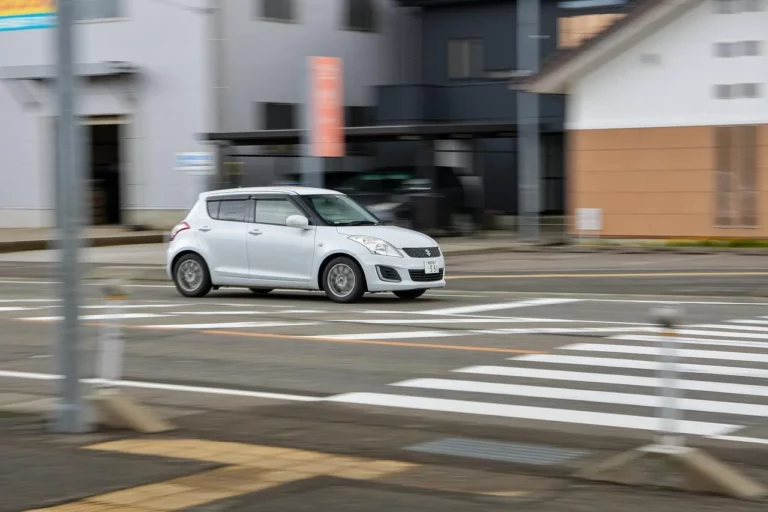Loss of Value Claims Lawyer Florida

If you’ve been involved in a car accident in Florida, you understand the stress and inconvenience it can bring. Beyond physical injuries and vehicle damage, many accident victims also experience a loss of value to their vehicles. This loss, known as diminished value, refers to the reduction in a vehicle’s market value due to its accident history, even after repairs have been completed. Pursuing compensation for this diminished value can be complex, requiring expert legal guidance to navigate the intricacies of the claims process. At Weston & Pape, our dedicated team of loss of value claims lawyers is here to help. With our extensive experience in handling loss of value claims in Florida, we are committed to advocating for your rights and helping you secure the compensation you deserve. If you’ve suffered a loss of value to your vehicle as a result of an accident, don’t hesitate to contact us at 561-299-3999 for a free consultation.
Understanding Diminished Value Claims in Florida
When a vehicle is involved in a car accident in Florida, the consequences can go far beyond the immediate repair bills and medical concerns. While many drivers focus on restoring their vehicle to working condition, one critical issue often goes overlooked: diminished value. This refers to the loss in market value that a vehicle suffers—even after being fully repaired—because it has been involved in a collision. For many Florida drivers, particularly those with newer, luxury, or well-maintained vehicles, the financial impact of diminished value can be significant.
Understanding diminished value claims is essential for any vehicle owner who has experienced a car accident due to someone else’s negligence. Below, we’ll explore the concept in detail, including the types of diminished value, the factors that influence it, how to calculate it, and what steps to take to pursue a claim.
What Is a Diminished Value Claim?
A diminished value claim is a request for compensation that reflects the difference in your vehicle’s market value before and after an accident. Even if the car has been repaired using original manufacturer parts and by a certified technician, the fact that it has a prior accident history usually lowers its resale or trade-in value.
For example, consider a car that was worth $30,000 prior to an accident. After repairs, it may only be worth $25,000—even if it looks and drives the same. That $5,000 reduction in value is the diminished value. Florida law allows certain drivers to pursue compensation for that loss if they were not at fault for the accident.
Types of Diminished Value
There are three main types of diminished value that may be applicable in a Florida claim:
-
Inherent Diminished Value
This is the most commonly pursued type of diminished value. It assumes that the vehicle has been repaired properly but still loses value simply due to the fact it was involved in an accident. This is largely due to buyer perception; even a well-repaired car may be viewed as less reliable or more risky. -
Repair-Related Diminished Value
This form of diminished value occurs when the quality of repairs contributes to the reduction in the car’s value. For example, if non-OEM parts were used or if the paint no longer matches perfectly, the vehicle’s value may drop further. -
Immediate Diminished Value
This is the difference in value immediately after the accident but before any repairs are made. While not commonly used in personal diminished value claims, this metric can be important in determining initial value losses for insurance estimates.
Factors Affecting Diminished Value
Several factors influence how much value your car loses after an accident. These include:
-
Severity of the Damage: The more extensive the damage, the higher the potential for diminished value. Structural damage, frame damage, or airbag deployment significantly lower a car’s resale value.
-
Vehicle Age and Mileage: Newer vehicles suffer more from diminished value than older ones. A three-year-old car with low mileage will lose more resale value than a 10-year-old car with high mileage.
-
Make and Model: Luxury vehicles and performance models tend to suffer greater losses in value after an accident. Brand perception also plays a role; vehicles from brands known for safety and reliability may lose more value post-collision.
-
Repair Quality: Vehicles repaired at certified shops with OEM parts usually retain more value than those fixed with aftermarket parts or at low-cost repair centers.
-
Vehicle History Reports: Services like Carfax or AutoCheck publicly display a vehicle’s accident history, making it harder to hide previous damage—even after flawless repairs. This transparency affects the perceived value.
How Is Diminished Value Calculated?
Calculating diminished value is not an exact science, but there are several commonly used methods. Insurance adjusters and appraisers often rely on one of the following:
-
The 17c Formula
This method, commonly used by insurance companies, was developed as part of a court case settlement involving State Farm. While not officially endorsed by Florida law, it is frequently used to determine a baseline for diminished value. It involves calculating a percentage of the pre-accident value, adjusting based on damage severity and mileage. -
Market Comparison Method
This approach compares the value of your vehicle (post-repair) to similar vehicles on the market with no accident history. It may involve looking at dealership listings, auction results, and appraiser data to find the value gap. -
Before-and-After Method
This method uses an appraisal of the vehicle’s value before the accident and then again after it has been repaired. The difference between these two values is the diminished value. -
Independent Appraisal
Hiring a licensed vehicle appraiser in Florida is often the best way to get a reliable estimate. A formal appraisal can serve as strong evidence in a diminished value claim, particularly if the insurance company offers a low settlement.
Who Can File a Diminished Value Claim in Florida?
In Florida, diminished value claims are typically available to not-at-fault drivers. If another driver’s negligence caused the accident, you may be entitled to recover the diminished value from that driver’s insurance company.
It’s important to note that Florida is a no-fault state for personal injury protection (PIP) coverage. However, diminished value is not covered under PIP—it falls under the category of property damage liability, which applies when another party is at fault.
Additionally, if your own insurance policy includes collision or comprehensive coverage, you may not be able to recover diminished value through your insurer, unless your policy specifically includes that coverage or you are dealing with an uninsured/underinsured motorist.
Steps to Pursue a Diminished Value Claim in Florida
-
File a Claim Against the At-Fault Driver’s Insurance
If someone else caused the accident, start by filing a property damage claim with their insurance company. -
Get a Professional Appraisal
Independent appraisals are one of the most effective ways to determine the diminished value of your vehicle. These reports are especially useful when an insurer disputes your claim or offers an inadequate settlement. -
Collect Supporting Documentation
This includes:-
Pre-accident and post-repair photos
-
Vehicle maintenance records
-
Repair invoices and damage assessments
-
Copies of the accident report
-
Vehicle value estimates from third-party platforms
-
-
Negotiate with the Insurance Company
Be prepared for resistance. Insurers may argue that the repairs were sufficient and that no loss in value occurred. Having an attorney can help you present a stronger case. -
Seek Legal Representation if Necessary
If the insurance company refuses to offer fair compensation, your next step may be to file a lawsuit. An experienced attorney can evaluate your case, negotiate on your behalf, and advocate for you in court if necessary.
The Importance of Legal Support
Pursuing a diminished value claim is not always straightforward. Insurance companies may try to downplay your loss, delay the process, or outright deny your claim. A skilled Florida personal injury attorney can help you:
-
Prove the value of your vehicle before and after the accident
-
Establish the other driver’s liability
-
File appropriate paperwork and handle deadlines
-
Negotiate with insurers on your behalf
-
Take legal action if a fair settlement is not reached
Don’t Let Diminished Value Go Unnoticed
When your vehicle is involved in an accident, the financial loss doesn’t end with the repairs. Diminished value represents a hidden but very real consequence that can cost you thousands of dollars, especially when it comes time to sell or trade in your vehicle.
Florida drivers should be aware of their rights to seek compensation for diminished value—especially when another party is at fault. By understanding the claim process, gathering proper documentation, and working with a qualified attorney, you can take meaningful steps toward recovering this overlooked form of loss.
If you believe your vehicle has suffered diminished value after a collision, don’t wait—consult with a personal injury attorney who understands Florida’s laws and can help you fight for the compensation you deserve.
Strategies Employed by Insurance Companies to Reduce Payouts
When it comes to diminished value claims in Florida, insurance companies are known to employ various tactics to minimize payouts and protect their bottom line. Despite the validity of a claim, insurance adjusters may use strategies aimed at disputing the extent of the vehicle’s diminished value or even denying the claim altogether.
Challenging the Validity of the Claim
One of the primary tactics used by insurance companies is to challenge the validity of the diminished value claim itself. Adjusters may argue that the vehicle’s diminished value is not significant enough to warrant compensation or that the claimant is not entitled to such compensation under their policy.
Disputing the Calculation of Diminished Value
Insurance companies often dispute the calculation of diminished value put forth by claimants. They may argue that the methodology used to calculate the diminished value is flawed or that certain factors were not appropriately considered in the calculation.
Downplaying the Impact of the Accident
Insurance adjusters may downplay the impact of the accident on the vehicle’s value, suggesting that the damage sustained was minor or that the repairs were sufficient to restore the vehicle to its pre-accident condition. They may also argue that any perceived loss of value is merely speculative and not supported by objective evidence.
Delaying the Claims Process
Another tactic commonly used by insurance companies is to delay the claims process in the hopes that the claimant will become frustrated or give up on pursuing compensation for diminished value. Delay tactics may include requesting additional documentation, scheduling multiple inspections, or simply dragging out the negotiation process.
Offering Low Settlement Offers
When insurance companies do decide to settle a diminished value claim, they often offer low settlement amounts in an attempt to minimize their financial liability. Adjusters may use various tactics to justify these low offers, such as citing internal valuation guidelines or comparing the offer to similar cases with lower settlement amounts.
Denying the Claim Outright
In some cases, insurance companies may outright deny a diminished value claim, claiming that the vehicle’s diminished value is not covered under the policy or that the claimant failed to meet certain requirements for compensation.
Insurance companies in Florida employ various tactics to minimize loss of value claims and protect their financial interests. However, by understanding these tactics and seeking assistance from a knowledgeable personal injury attorney, claimants can effectively advocate for their rights and pursue fair compensation for the diminished value of their vehicles. If you’ve experienced diminished value to your vehicle as a result of an accident, don’t hesitate to consult with an experienced attorney who can help you navigate the claims process and fight for the compensation you deserve.
Speak to a Loss of Value Claims Attorney in Florida
Navigating loss of value claims in Florida requires expertise, perseverance, and dedicated legal representation. At Weston & Pape, our experienced team of loss of value claims attorneys understands the challenges faced by individuals seeking compensation for the diminished value of their vehicles. With our unwavering commitment to client advocacy and proven track record of success, we strive to provide comprehensive legal support and guidance throughout the claims process. If you’ve suffered a loss of value to your vehicle as a result of an accident, don’t hesitate to contact us at 561-299-3999 for a free consultation. Let us be your trusted allies in pursuing fair compensation for your losses and securing the justice you deserve.



 Call Us Today - It's Free
Call Us Today - It's Free